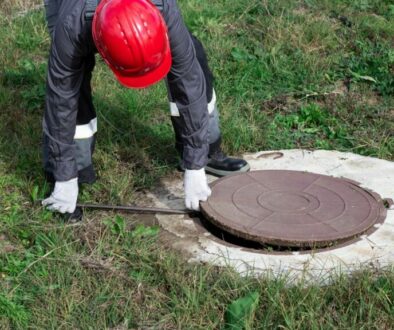How To Become A Correctional Officer?
If you are looking for a job that involves serving the community and maintaining public safety, becoming a correctional officer is an excellent career option. Not only is this job fulfilling, but it also offers great opportunities for growth and advancement. In this article, we will take a closer look at the steps and skills needed to become a correctional officer, as well as the benefits of working in this field.
Steps To Becoming A Correctional Officer
If you’re interested in becoming a Correctional Office, here are some steps to help you on your way:
- Meet Basic Requirements
The first step towards becoming a correctional officer is to meet the basic requirements. This includes being a citizen of the United States or a permanent resident, being at least 18 years old, and having a high school diploma or equivalent. Additionally, prospects must not have any felony convictions or domestic violence charges on their record.
While meeting the basic requirements is necessary to become a correctional officer, there are also other skills and traits that can make someone successful in this field. For example, having strong communication skills and the ability to remain calm and level-headed in stressful situations can be invaluable when dealing with inmates. - Complete Training and Education
Once the basic requirements are met, the next step is to complete the necessary training and education. One of the most common ways to get into this field is to complete a training program at a correctional officer training academy or a community college. These programs typically last between six and 12 months and cover a wide range of topics, including criminal law, defensive tactics, emergency response, and interpersonal communication.
During their training, prospective correctional officers will learn about the policies and procedures of the correctional facility where they will be working. They will also receive instruction on how to maintain safety and security within the facility, as well as how to interact with inmates in a professional and respectful manner.
Furthermore, candidates may also need to pass a physical fitness test and undergo a background investigation before being hired. This is because correctional officers need to be physically fit and mentally prepared for the demands of the job. - Apply for Position
After completing the necessary training, the next step is to apply for a position at a correctional facility. The hiring process typically involves submitting an application, taking a written exam, going through an interview, and participating in a physical and psychological evaluation.
Once hired, new officers will typically undergo additional on-the-job training to supplement their classroom education. This training may include shadowing experienced officers, attending workshops and seminars, and participating in simulations of real-life scenarios.
Overall, becoming a correctional officer requires a combination of education, training, and personal qualities. While it can be a challenging and demanding job, it can also be highly rewarding for those who are committed to maintaining safety and security within the correctional system.
Skills Needed For Becoming A Correctional Officer
Becoming a correctional officer is not an easy task. It requires a certain set of skills and characteristics that are essential for the job. A correctional officer is responsible for maintaining the safety and security of inmates and staff. They must be able to communicate effectively with inmates, colleagues, and supervisors. They must also be physically fit and able to respond to emergency situations quickly and decisively.
Communication and interpersonal skills are crucial for a correctional officer. They must be able to communicate effectively with inmates, colleagues, and supervisors. They must be able to listen to what others are saying and respond appropriately. They must also be able to defuse potentially volatile situations by using effective communication skills.
Physical fitness is also important for a correctional officer. They must be able to respond to emergency situations quickly and decisively. They must be able to run, climb, and lift heavy objects if necessary. They must also be able to maintain their physical fitness throughout their career.
Vigilance is another important skill for a correctional officer. They must be able to maintain a high level of awareness at all times. They must be able to identify potential threats and respond quickly. They must also be able to adapt to ever-changing situations.
Critical thinking and problem-solving skills are also essential for a correctional officer. They must be able to make quick and effective decisions. They must be able to analyze situations and determine the best course of action. They must also be able to remain calm under pressure.
Integrity, professionalism, and ethical conduct are also important for a correctional officer. They must be able to maintain a high level of professionalism at all times. They must also be able to maintain the trust of inmates, colleagues, and supervisors. They must be able to act with integrity and ethical conduct in all situations.
Becoming a correctional officer is a challenging and demanding job that requires a certain set of skills and characteristics. Communication and interpersonal skills, physical fitness, vigilance, critical thinking and problem-solving skills, and integrity, professionalism, and ethical conduct are all essential for a successful career as a correctional officer.
What is A Correctional Officer?
Correctional officers play a vital role in the criminal justice system. They are responsible for maintaining order and safety within correctional facilities, which can be challenging and demanding work. A typical day for a correctional officer may involve supervising inmates during meals, recreation, and work assignments, conducting searches for contraband, and responding to emergencies such as fights or medical crises.
Correctional officers must also be skilled in conflict resolution and communication. They must be able to diffuse tense situations and communicate effectively with inmates who may be hostile or uncooperative. In addition, correctional officers often work closely with other criminal justice professionals, such as probation officers, parole officers, and law enforcement officials.
Despite the challenges, many correctional officers find the work to be rewarding. They have the opportunity to make a positive impact on the lives of inmates by providing guidance, support, and resources for rehabilitation. Correctional officers also play a crucial role in maintaining public safety by ensuring that dangerous criminals are securely confined and prevented from committing further crimes.
One important aspect of the job is ensuring that inmates have access to education and vocational training. Many correctional facilities offer programs in areas such as computer skills, construction trades, and culinary arts. These programs can help inmates acquire new skills and prepare for successful re-entry into society after their release.
Another important responsibility of correctional officers is to ensure that inmates receive appropriate medical care. This can involve coordinating with medical professionals and monitoring the health and well-being of inmates. In addition, correctional officers must be vigilant in identifying and responding to signs of mental illness or substance abuse among inmates.
Correctional officers are an essential part of the criminal justice system. They play a critical role in maintaining order and safety within correctional facilities, providing opportunities for rehabilitation and education, and ensuring that inmates receive appropriate medical care. Despite the challenges of the job, many correctional officers find the work to be rewarding and fulfilling.
The Benefits of Working as A Correctional Officer
Working as a correctional officer can be a highly rewarding and fulfilling career choice. Not only does it offer competitive salaries and comprehensive benefits packages, but it also provides the opportunity for career advancement. Correctional officers may even have the chance to work in various areas of the criminal justice system, including law enforcement, court administration, and probation and parole services.
One of the most significant benefits of working as a correctional officer is the crucial role they play in maintaining public safety and protecting the community. They work diligently to ensure that inmates are safe, secure, and treated with dignity and respect. By helping inmates to rehabilitate, develop valuable skills, and eventually reintegrate into society, correctional officers have the opportunity to make a positive impact on the lives of inmates and their families.
Another benefit of working as a correctional officer is the sense of pride and accomplishment that comes with the job. Correctional officers are responsible for maintaining order and discipline within correctional facilities, and their work is essential to the smooth operation of the criminal justice system. They work tirelessly to ensure that justice is served and that the public is protected from dangerous criminals.
Beyond the tangible benefits of the job, correctional officers also possess unique skills and characteristics that are highly valued in other areas of society. These skills include strong communication skills, problem-solving abilities, and the ability to remain calm and composed in high-pressure situations. These skills are transferable to numerous other professions, making correctional officers highly sought after in a variety of fields.
Working as a correctional officer is a challenging but rewarding career option that requires meeting certain requirements, completing training and education, and possessing the necessary skills and characteristics. If you are interested in serving your community and ensuring public safety, becoming a correctional officer may be the right career path for you!




